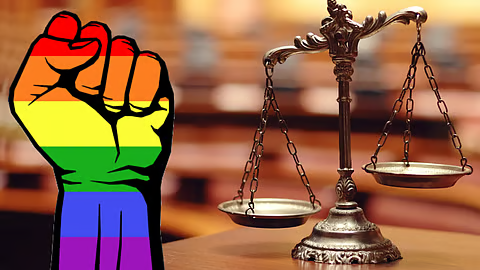Published On: 21st January, 2024
The State of Maharashtra vs Arvind Sarjerao Devkar (JANUARY 30, 2023)[1]
FACTS:
In Criminal Appeal No. 852 of 2015, the defendant, as convicted on charges under Sections 363, 366-A, 376 of the Indian Penal Code (IPC),[2] and Sections 6 and 4 of the Protection of Children from Sexual Offences Act, 2012 (POCSO Act),[3] appealed his ten-year term of strict incarceration. The conviction stemmed from the harrowing incident involving the sexual assault, kidnapping, and prostitution of a juvenile girl in the seventh grade.
The victim’s father reported her missing on May 31, 2014, after the accused, her teacher, informed him that they were on vacation and would return in a few days. The accused, having been raised in Trimbakeshwar, Nashik, claimed he took the girl along to prevent her from committing suicide amid a dispute with her parents.
The victim’s testimony detailed disturbing events, alleging that the accused provided her with a cell phone, called her to meet him, forcibly tied a Mangalsutra at a temple, and sexually assaulted her multiple times during their travels. The culmination occurred at a lodge in Saputara (Gujarat), where the accused engaged in forced sexual intercourse. The Washi police and the victim’s uncle intervened on June 14, 2014, bringing an end to the suffering.
The Additional Sessions Judge, Bhoom, found the appellant guilty, and the sentences were decreed to run concurrently. However, dissatisfied with the perceived leniency, the State filed Criminal Appeal No. 914 of 2015, seeking an enhancement of the sentence to life imprisonment.
The joint hearing of both appeals raised questions about the legality and sustainability of the conviction judgment. The sequence of events, from the victim’s disappearance to the disturbing acts committed by the accused, formed the basis of the appeals. The gravity of the charges and the contention that the trial judge was too lenient underscored the need for a comprehensive review of the case.
ISSUES:
- WHETHER the accused liable to be punished for the offense of kidnapping under section 363 of IPC?
- WHETHER the accused is liable to be punished for the offense of rape under section 376 of IPC?
JUDGEMENT:
In Criminal Appeal No. 852 of 2015, the defendant was convicted on charges involving the kidnapping and sexual assault of a minor girl. The State, represented by the Assistant Public Prosecutor (APP), argued that the prosecution presented a strong case. The accused, who was the girl’s teacher, allegedly exploited his position, luring her away on the pretext of marriage. The evidence suggested that he convinced her to leave home, took her to various places, and even forcibly made her wear a mangalsutra, claiming she was his wife.
The APP emphasized that the victim was a minor, around 13 to 14 years old, in the 7th grade. This established the offense of kidnapping a minor. The accused was accused of performing a marriage ceremony, supported by witnesses and evidence of purchasing a mangalsutra. The girl testified to forcible sexual acts, supported by medical evidence, invoking section 4 and section 6 of the POCSO Act.[4] Assuming, for the sake of argument, that the underage girl has given consent to the sexual activity, it would still be classified as rape. Rape charges would apply because engaging in a sexual act with a girl under the age of eighteen is consistently regarded as non-consensual, leading to punishment under either the Indian Penal Code or the POCSO Act.[5]
However, the defense argued that the girl willingly accompanied the accused due to a dispute with her parents. They questioned the evidence of the girl’s age, criticizing the lack of an ossification test and reliance on an unverified school record. The defense also contested the marriage allegation, stating no proof of a ceremony existed. Regarding rape, they argued that medical evidence suggested the girl was accustomed to sexual activity.
The exhibit provided by the doctor, however, confirmed the victim’s age and findings of sexual intercourse. The victim’s father reported her missing, and she testified to being lured and sexually assaulted. Pancha’s witnesses and the Investigating Officer supported the prosecution’s case. The court found the accused guilty, rejecting the defense’s claims.
Similar to this case were the facts and circumstances of the case of Anversinh alias Kiransinh Fatesinh Zala v. State of Gujarat,[6] wherein the three-judge Bench of the Hon’ble Apex Court has extensively dealt with when provisions under Section 361 and 363 of IPC[7] are squarely attracted. And the Bombay High Court in this case has based its ruling on the same.
The defense’s arguments were deemed to lack credibility, and the court affirmed the trial court’s decision. The sentence was considered appropriate, and the State’s appeal for an enhanced sentence was dismissed.
ANALYSIS:
The definition of sexual assault on children should be explicitly clarified, particularly regarding the terms “touching” or “physical contact,” similar to how these definitions are clearly outlined elsewhere. The POCSO Act should address this ambiguity to prevent courts from making absurd interpretations and issuing traumatic observations for a child. Ambiguities in the interpretation of the Act can lead to a deviation from the intended spirit and objectives of the law. It is crucial to improve gender sensitivity within the judiciary to ensure the fair delivery of justice.[8]
The Bombay High Court in this case underscored the betrayal of trust inherent in cases where a teacher, who is expected to be a mentor and guide, engages in criminal behavior against a student. Teachers play a crucial role in shaping the character and future of their students. When that trust is violated, it has severe consequences for both the individual and the educational institution.
For instance, sexual and gender-based violence has persistently plagued Ecuador’s education system, exhibiting widespread instances of sexual violence spanning from preschool to high school.[9] Such incidents in educational arenas can have long-lasting psychological and emotional effects on the victimized student. The trauma experienced by the student may hinder their academic progress, personal development, and ability to trust authority figures in the future.
It is crucial to enhance awareness among people in India and globally regarding the imperative to safeguard and advance children’s rights, particularly in protecting them from sexual abuse. The most effective approach involves involving children in discussions and fostering active participation. Exploitation of the student-teacher relationship calls for increased measures to protect students, including thorough background checks, proper training, and continuous supervision for individuals in authoritative roles.[10]
It is commendable that both the trial court and the Bombay High Court have effectively interpreted the provisions of the POCSO Act and ensured justice.
CONCLUSION
The Bombay High Court rejected both appeals, citing a lack of basis. It affirmed the conviction under section 363 of the Indian Penal Code[11] for kidnapping and offense under the Protection of Children from Sexual Offences (POCSO) as ruled by the trial court. The court, relying on the victim’s father, the victim’s testimony, and school records, determined that the accused took advantage of his position as a teacher and the girl being his student and also a minor. The accused made no effort to refute the allegations, leading to dismissing the appeal. Additionally, the state’s appeal to enhance the sentence was also dismissed by the High Court, which found no justification for such an enhancement.
These circumstances are profoundly disturbing and require a thorough response from the legal system, educational institutions, and society to safeguard students and uphold trust in educators. In this case, the recent decision by the High Court of Bombay not only delivered justice but also bolstered confidence in society.
Reference(s):
[1] The State of Maharashtra v Arvind Sarjerao Devkar, Criminal Appeal No. 852 of 2015, No. 914 of 2015.
[2] Indian Penal Code, 1860, §363, §366-A, §376, No. 45 of 1860 (India).
[3] Protection of Children against Sexual Offences Act, 2012, §4 and §6, No.32, Acts of Parliament, 2012 (India).
[4] supra note 2.
[5] Sandeep Chachra, Ghasiram Panda, Joseph Mathai, Law Commission Report on age of consent missed opportunity to de-criminalise sex between minors, Down To Earth (Oct. 26, 2023), https://www.downtoearth.org.in/blog/health/law-commission-report-on-age-of-consent-missed-opportunity-to-de-criminalise-sex-between-minors-92494.
[6] Anversinh alias Kiransinh Fatesinh Zala v. State of Gujarat, (2021) 3 SCC 12.
[7] supra note 1, §361, §363.
[8] Ashok Kumar Nayak, Lakshmi Vivek, Sexual assault under POCSO Act: A child rights perspective, Down To Earth (Mar. 31, 2021), https://www.downtoearth.org.in/blog/health/sexual-assault-under-pocso-act-a-child-rights-perspective-76233.
[9] “It’s a Constant Fight,” School-Related Sexual Violence and Young Survivors’ Struggle for Justice in Ecuador, Human Rights Watch (Dec. 9, 2020), https://www.hrw.org/report/2020/12/09/its-constant-fight/school-related-sexual-violence-and-young-survivors-struggle.
[10] Id.
[11] supra note 1, §363.


